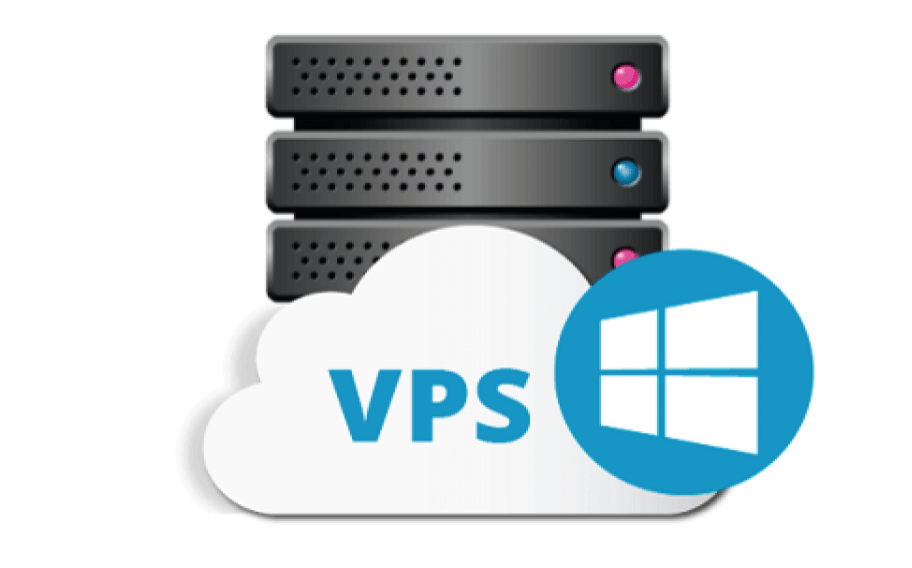Tại Google Cloud, Google cam kết cung cấp cho khách hàng sự lựa chọn hàng…
VPS Window & Basic information you need to know
Windows VPS is an effective solution for businesses that need to run Windows applications. Windows VPS provides efficiency, security, and scalability benefits, helping businesses improve their competitiveness.
Introducing VPS Window
A virtual private server (VPS) is a virtual machine that runs on a physical server. VPS is a popular choice for businesses and individuals who need a scalable and affordable solution to host their websites and applications.
Windows VPS is a VPS running the Windows operating system. They provide a familiar and easy-to-use environment for Windows users, and can be used to host a variety of applications, including web servers, databases, and email servers.
Benefits of using Windows VPS
VPS Window provides a familiar environment in use and benefits that can be listed and paid attention to. So the main benefits of using a Windows VPS include:
- Ability of extension: VPS can be easily scaled up or down to meet your changing needs.
- Expense: VPS is a more affordable option than dedicated servers.
- Control/Management: You have more control over your VPS than with shared hosting.
- Security: VPS is more secure than shared hosting.
Besides that, here are some things you can do with a Windows VPS:
- Website and application hosting: VPS is a great way to host websites and applications. They provide a powerful and scalable environment that can meet the needs of even the most demanding websites and applications.
- Create a development environment: VPS is a great way to create a development environment. They provide a clean and isolated environment that you can use to test and deploy your applications.
- Run virtual machine: VPS can be used to run virtual machines. This allows you to run multiple operating systems on the same server.
If you are looking for a scalable, affordable, and easy-to-use solution to host your website and applications, then a Windows VPS is a great choice.
When choosing a Windows VPS provider, it's important to consider your needs and budget. You should also make sure that the provider you choose offers a good level of customer support.
Limitations of VPS Window
While Windows VPS has some advantages, there are also some potential weaknesses to consider:
- License cost: Compared to Linux VPS, Windows VPS usually has a higher price. This is because Microsoft charges a licensing fee for the Windows operating system that vendors pass on to customers.
- Complexity: Windows Server is a more complex operating system than Linux, which may require additional expertise to manage and maintain.
- Security hole: Windows is more susceptible to security vulnerabilities than Linux, and may require more frequent patching and maintenance.
- Performance cost: Windows Server may have higher performance overhead compared to Linux, which can impact the performance of resource-intensive applications.
- Vendor lock: Using Windows Server can lead to vendor lock-in, making it more difficult to switch to another platform or vendor in the future.
- Limited customization: Windows Server offers less customization than Linux, which can limit the ability to tailor the VPS to specific needs.
- Community support: The Linux community is generally larger and more active than the Windows Server community, which can limit support and resource availability.
- Compatibility issues: Some applications may not be compatible with Windows Server, which may require additional workarounds or workarounds.
- Roadmap/Time to learn: Learning how to manage a Windows Server VPS may require more time and effort than a Linux VPS, especially for those unfamiliar with the Windows Server environment.
In summary, although Windows VPS provides a familiar and user-friendly environment for Windows users, it is essential to carefully consider the potential weaknesses and weigh them against the benefits before making a decision. Determine whether it is the right choice for your specific needs and requirements.
Types of VPS Windows
Windows VPS types can be classified based on the following factors:
- Windows version: Windows VPS can run different versions of Windows, including Windows Server 2022, Windows Server 2019, Windows Server 2016, Windows Server 2012, Windows Server 2008, etc.
- CPU Frequency: Windows VPS can have CPU frequencies ranging from 1 GHz to 3 GHz. The higher the CPU frequency, the better the performance of the VPS.
- RAM volume: Windows VPS can have different amounts of RAM, from 1 GB to 64 GB. The larger the amount of RAM, the more tasks the VPS can handle at the same time.
- Storage capacity: Windows VPS can have different storage capacities, from 20 GB to 1 TB. The larger the storage capacity, the more data the VPS can store.
- Bandwidth: Windows VPS can have bandwidths ranging from 1 Mbps to 1 Gbps. The greater the bandwidth, the faster the VPS can transmit data.
- Location: Windows VPS can be located in different locations around the world. The closer the VPS location is to the target audience, the faster the access speed will be.

Here are some popular types of Windows VPS:
- Basic Windows VPS: This type of Windows VPS has low configuration, suitable for basic needs such as data storage, email, etc.
- Windows VPS for business: This is a highly configurable Windows VPS type, suitable for businesses that need to store and process large amounts of data, deploy resource-intensive applications, etc.
- Dedicated Windows VPS: This type of Windows VPS is designed for specific purposes, such as web hosting, game hosting, etc
When choosing the appropriate Windows VPS type, you need to consider the following factors:
- Demand: You need to determine what your VPS needs are to choose the type of VPS with the appropriate configuration.
- Budget: You need to consider your budget to choose a reasonably priced VPS.
- Service quality: You should choose a reputable VPS provider with good service quality.
Below are some specific examples of each type of Windows VPS:
- Basic Windows VPS: Suitable for basic needs such as data storage, email, small websites, etc
- Windows VPS for business: Suitable for businesses that need to store and process large amounts of data, deploy resource-intensive applications, etc.
- Dedicated Windows VPS: Suitable for specific purposes, such as web hosting, game hosting, etc
For example, if you need data and email storage for a small business, you can opt for a basic Windows VPS. If you need to store and process large amounts of data for a large business, you can choose a Windows VPS for business. If you need to host a website with a large amount of traffic, you can choose a dedicated Windows VPS for web hosting.
Install and use Windows VPS
To install and use a Windows VPS, you need to do the following steps:
1. Choose a Windows VPS provider
First, you need to choose a reputable Windows VPS provider with good service quality. You can refer to some popular Windows VPS providers such as:
- DigitalOcean
- Linode
- Vultr
- Hostinger
- OVHcloud
2. Buy Windows VPS
After choosing a Windows VPS provider, you need to buy a VPS that suits your needs. You can choose the Windows VPS type, Windows version, CPU frequency, RAM amount, storage capacity, bandwidth, and VPS location.
3. Connect to Windows VPS
After purchasing a Windows VPS, you will receive login information to connect to the VPS. This login information typically includes an IP address, username, and password.
You can connect to a Windows VPS in the following ways:
- Using Remote Desktop Protocol (RDP): RDP is a protocol that allows you to connect to and control a remote computer. To connect to a Windows VPS using RDP, you need to install the RDP application on your computer.
- Using SSH: SSH is a protocol that allows you to connect and manage a remote computer. To connect to a Windows VPS using SSH, you need to install the SSH client on your computer.
- Using a web browser: Some Windows VPS providers offer a web interface for VPS management. To use the web interface, you need to visit your Windows VPS provider's website and log in with your credentials.
4. Install Windows operating system
If you buy a Windows VPS without an operating system, you need to install the Windows operating system for the VPS. You can install the Windows operating system using the ISO installation method or install directly from the VPS provider.
5. Install necessary applications
After installing the Windows operating system, you need to install the necessary applications for your intended use. You can install apps from the Microsoft Store, from the app provider's website, or from other sources.
6. Use Windows VPS
After installing the necessary applications, you can start using your Windows VPS. You can use a Windows VPS to store data, run applications, or deploy web services.
Here are some specific examples of how to use a Windows VPS:
- Data saving: You can use Windows VPS to store your data, such as website data, business data, or personal data.
- Run applications: You can use a Windows VPS to run applications, such as web applications, desktop applications, or mobile applications.
- Deploy web services: You can use Windows VPS to deploy web services, such as web hosting, email hosting, or database hosting.
Issues to note when using Windows VPS
Here are some specific issues to keep in mind when using a Windows VPS:
- Expense: The cost of a Windows VPS depends on factors such as VPS type, Windows version, CPU frequency, amount of RAM, storage capacity, bandwidth, and VPS location. You should compare prices of Windows VPS providers to choose a service package that suits your needs and budget.
- Knowledge: If you have no knowledge of Windows, you can refer to the documentation or seek help from experts.
- Security & Updates: You need to take the necessary security measures to protect your Windows VPS, including:
- Update your Windows operating system and applications regularly.
- Use a strong and unique password for your Windows VPS.
- Create regular backups of your data.
- Use a firewall to prevent unauthorized access.
- Use security applications to protect your Windows VPS.
Compare Window VPS and Linux VPS
Below is an overview comparison table between Windows VPS and Linux VPS:
| The existing |
Windows VPS |
Linux VPS |
| Operating system | Windows | Linux |
| Cost | Could be higher | Could be lower |
| Knowledge | Requires knowledge of Windows | Could be easier to use |
| Security | Can be a target for security attacks | Generally considered safer |
| Flexibility | Can run Windows applications | Can run more types of applications |
| Custom | More customizable | Less customization possible |
| Support | Could be less supportive | There could be more support |
So that you can choose the right VPS according to your requirements and current usage situation, Gimasys summarizes more detailed comparisons between Window VPS and Linux VPS as follows:
| The existing |
Windows VPS |
Linux VPS |
| Operating system | Windows is the world's most popular operating system, used by many businesses and individuals. Windows VPS allows you to run Windows applications on your own private server. | Linux is an open source operating system, used by many businesses and organizations. Linux VPS allows you to run many types of applications on your private server. |
| Cost | Windows VPS may cost more than Linux VPS, because Windows is a paid operating system. | A Linux VPS can cost less than a Windows VPS, because Linux is an open source operating system. |
| Knowledge | Windows VPS requires knowledge of the Windows operating system and Windows applications. If you have no knowledge of Windows, you may have difficulty using a Windows VPS. | Linux VPS may be easier to use for those without knowledge of the Linux operating system. Linux has a simple command line interface and plenty of documentation available. |
| Security | Windows VPS can also be the target of security attacks. You need to take the necessary security measures to protect your Windows VPS. | Linux is generally considered more secure than Windows. Linux is open source, making it easy for security experts to detect and patch security vulnerabilities. |
| Flexibility | Windows VPS can run Windows applications, including enterprise applications, desktop applications, and mobile applications. | Linux VPS can run many types of applications, including enterprise applications, web applications, mobile applications, and open source applications. |
| Custom | Windows VPS is more customizable, allowing you to install your own custom applications and services. | Linux VPS is less customizable, but you can still install your own custom applications and services. |
| Support | Windows VPS providers often offer limited support for Windows VPS. | Linux VPS providers often offer extensive support for Linux VPS. |
Choose Windows VPS or Linux VPS?
The answer depends on your needs and preferences. If you need to run Windows applications, a Windows VPS is the best choice. If you need a low-cost, well-secured, and flexible server, a Linux VPS is a better choice.
Below are some suggestions when choosing Windows VPS or Linux VPS:
- If you need to run Windows applications, such as enterprise applications, desktop applications, or mobile applications, then a Windows VPS is the best choice.
- If you need a low-cost server, then a Linux VPS is a better choice.
- If you need a server with good security, then a Linux VPS is a better choice.
- If you need a flexible server that allows you to run a wide variety of applications, then a Linux VPS is a better choice.
- If you need extensive support, then Linux VPS is a better choice.



